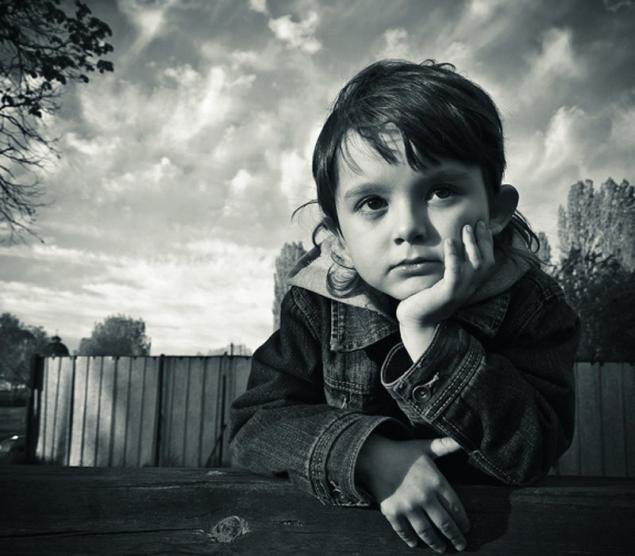760
4 parenting styles: what's yours? Rejecting parent

Most problems that occur with parenting, are associated with the ability or inability of parents to Express their emotions and take emotions to their children. This phenomenon even got a name — "emotional intelligence", now in Russian, a book that helps to train himself the "emotional educator". Its author, psychologist John Gottman, suggests that you first decide what we parents.
All parents love their children, but unfortunately, not all work on emotional education. I believe that almost all the mom or dad can become emotional caregivers, but many of them will have to overcome certain obstacles. One of the obstacles may become habitual attitude towards the emotions adopted in the homes where they grew up. Distraction and lack of skills to listen to their children.
In our study, we have identified 4 parenting style and find out what impact they have on children's behavior. Reading the description of each style, think about your relationship with the children, noting that it coincides with the situation in your family or different from it. Let's start with the parenting style, which we call "Rejecting parent".
Rejecting parent
— considers the child's feelings are unimportant and insignificant
— not interested or ignores the child's feelings
— wants the negative emotions of the child quickly passed
— to stop emotions often uses distraction
— can mock or not to disregard the emotions of a child
believes children's feelings are irrational, so they were not considered
— shows little interest in what the child is trying to tell him
— knows little about their own and others emotions
— feels uncomfortable, scared, experiencing anxiety, irritation, pain when a child expresses strong emotions
— fear to release emotions out of control
— more interested in how to deal with emotion than sense the emotions
believes negative emotions are harmful
believes that the concentration on negative emotions makes the situation worse
— doesn't know what to do with the emotions of a child
— sees the emotions of the child requirement to fix
— believes that negative emotions indicate poor adaptation of the child
— believes that the negative emotions of a child is bad for his parents
minimizes the child's feelings, downplaying the events that caused the emotion
— does not solve a child's problems; considers that, over time, they will be resolved
The influence of the style on children: children learn that their feelings are wrong, inappropriate, and unfounded. They may decide that they have some inherent flaw that prevents them from feeling. It can be difficult to regulate their emotions.
Unpleasant sensations — tabu
Likely, Robert was surprised when he heard that we called him rejecting parent. After all of the interviews with our researcher obvious that he loves his daughter Heather and spends a lot of time with her. He says that every time she is sad, he does everything he can to make "her treat". "I carry her in his arms and ask what she wants. Want to watch TV? To show you a movie? Do we want to go and play outside? I'm just near her and trying to fix it".
However, it does one important thing — doesn't ask her direct questions about her sadness. He asks: "How are you feeling, Heather? You feeling a little sad today?". This is because, in his opinion, to focus on unpleasant feelings is like watering weeds. From this, they grow bigger and stronger. And he, like many other parents, wants his life and the life of his precious daughter as much as possible of anger and sadness.
Slamming doors to negative feelings is a model of behavior that rejects many of the parents brought from childhood. Some of them, like Jim, grew up in violent families. Jim recalls the quarrel of their parents thirty years ago and how the parents broke up their children in separate rooms, where every alone cope with their feelings. Jim, his brothers and sisters were never allowed to talk about the problems parents or how they feel, because it meant to invoke further wrath of his father.
And now that Jim is married and has children of their own, any hint of conflict or emotional pain it immediately begins to evade and escape. To the extent that could not discuss with her six-year-old son and his problem with the school bully. Jim wants to be closer to son to listen to his troubles and to help develop a solution, but he can't speak as to denote the essence. Therefore, he rarely starts conversations on these topics, and his son, feeling that father uncomfortable, too, prefers not to discuss such issues with him.
To right this wrong
Adults whose parents give them little attention, may experience difficulties when discussing the emotions of their children. Becoming parents, they feel too much personal responsibility and trying to save their children from any pain and fix any injustice. For example, one of the participants of our study went crazy due to the fact that I could not calm her preschool-age son, broke his favorite toy tractor. She just didn't know any other way to save a child from sadness, but to correct and restore the world to its perfect state. In his grief, she heard the requirement to make the world a better place and did not distinguish between support needs and understanding.
Over time, these parents can begin to perceive any expression of sorrow or anger of their children like an impossible requirement, to be disappointed or to believe that they are being manipulated. As a result, they begin to ignore or downplay the trouble their children, trying to shrink the problem to the desired size, seal and hide so that she could forget.
"If Jeremy comes over and complains that one of my friends took his toy, I just say, "don't worry, he'll bring it back" — explains How Jeremy's father — and if he says: "This guy hit me", I respond: "Probably, it was an accident"... I want to teach him to withstand the blows of fate and continue their life."
Jeremy's mother, Marian, says that she holds a similar position in relation to the grief of his son. "I buy him ice cream to cheer and to make people forget about their troubles," she says. Marian expresses the belief, common among those who reject parents: children should not be sad, but if they are sad, then something is wrong with the child or with parents. "When Jeremy sad, I'm sad too, because I like to think that my child is happy and well adjusted, she says. I just don't want to see him upset. I want him to be happy."
Negative emotions are harmful
Many parents who belittle or devalue the emotions of their children, justify their behavior, explaining that their child is "just kids". Rejecting parents rationalizers his indifference based on the belief that the disorder of children from broken toys or events on the Playground too "little", especially in comparison with adult concerns — such as job loss, financial viability of the family or the national debt.
This does not mean that those who reject the parents are insensitive. In fact, many of them deeply feel their children, and this reaction is caused by the natural desire to protect them. They can be considered negative emotions in a sense "toxic" and do not want to expose their children to their harmful effects. In their opinion, it is impossible to dwell long on emotion therefore, solving the problems of their children, they focus on how to "overcome" an emotion, not the emotion itself.
For example, Sarah is concerned about the reaction of his four daughters on the death of her Guinea pigs. "I was afraid that if I sit down and experience all the emotions together with Becky, she's even more upset," she explains. So Sarah decided to show restraint and said to his daughter: "Everything is fine. These things happen. Your Guinea pig is old. We'll start a new one".
While dispassionate response Sarah might have reduced her own anxiety and she didn't have to deal with grief Becky, it has not helped Becky to feel that you understand her and comfort. In fact, Becky would think: "If it's not a big deal, then why am I so bad? I guess I'm just a big baby."
Don't scream!
And finally, some reject parents can deny or ignore the emotions of their children out of fear that emotion will inevitably lead to "loss of control". You probably heard your parents use the metaphor that compares the negative emotions of their children from fire, explosion or storm. "He easily breaks out, She often blows up", "He is raging". These parents almost never help your children learn to manage emotions. As a result, when their children grow up, they are afraid to experience sadness, considering it an open door to endless depression, and feeling angry, thinking about how not to break and not to cause someone pain.
Barbara, for example, feels guilty, when his natural temperament to break through into the presence of her husband and children. She considers that to Express anger — "selfish" and dangerous. In addition, the anger of "nothing helps... I start to shout loudly... and seek only what is to me feel right".
Considering your anger unpleasant phenomenon, Barbara is doing everything possible to distract the attention of his daughter Nicole from negative feelings. She recalled a case when Nicole got mad at my brother and his friends because they did not take her to play. "Then I put her on her knees and offered a small game proudly says Barbara. I showed crimson pantyhose Nicole and asked, "What happened to our legs? They became red with indignation!".
Barbara believes that she has successfully coped with the incident: "I deliberately do such things, because I realized that it is really a good way to deal with emotions". In fact, Barbara missed the opportunity to talk to my daughter about jealousy and isolation. This incident was a chance to sympathize with Nicole and help to determine your emotions; Barbara could even tell her how to resolve the conflict with his brother. Instead, Nicole received a message that her anger is not very important; it is better to swallow and look the other way.
From the book "Emotional intelligence of a child"
published
P. S. And remember, just changing your mind — together we change the world! ©
Linguistic killers of success
As purple and sweetlolita plants affect the perception of space in Your garden























